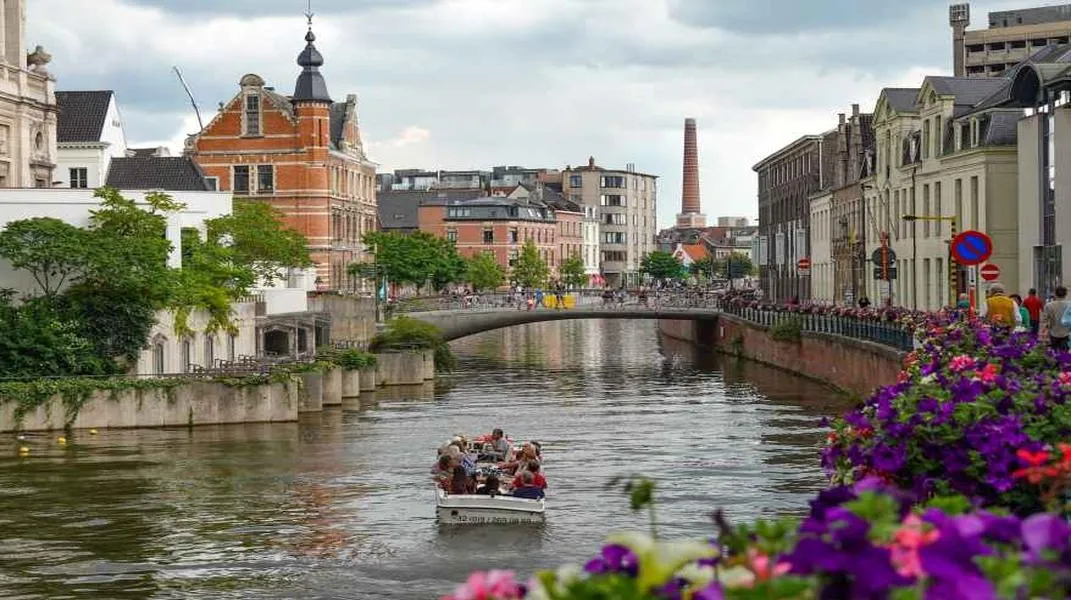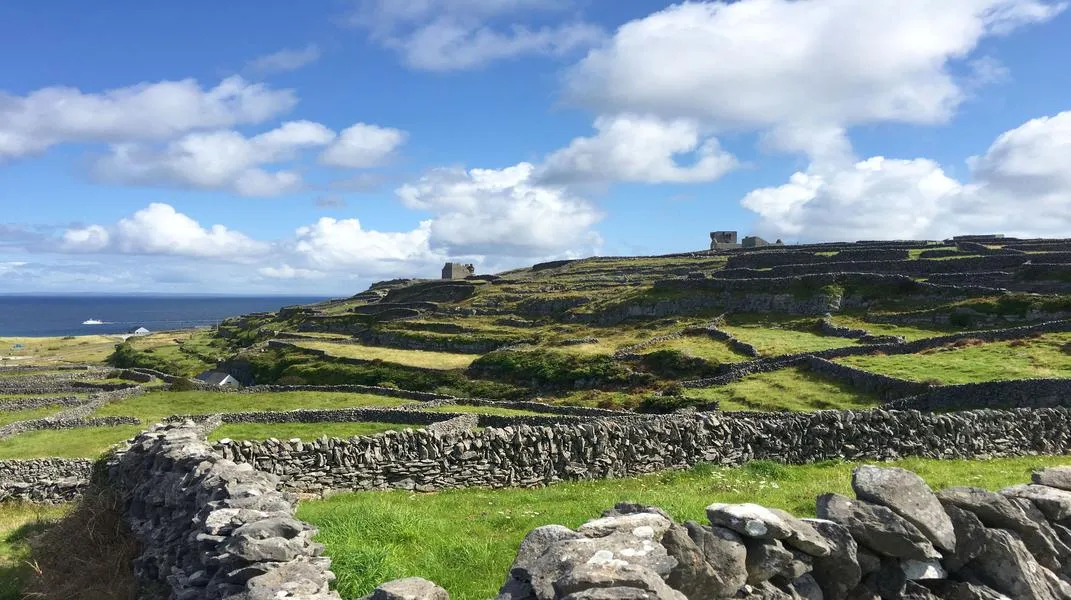Discovering the Enchantment of the Azores: A Guide for Travelers
Nestled in the heart of the Atlantic Ocean, the Azores archipelago is a stunning ensemble of nine volcanic islands that belong to Portugal. Known for their breathtaking landscapes, rich biodiversity, and unique cultural heritage, the Azores offer an unparalleled experience for travelers seeking adventure, tranquility, and an escape from the mundane. From lush green hills and dramatic coastlines to serene lakes and hot springs, the Azores are a paradise for nature lovers, outdoor enthusiasts, and anyone looking to immerse themselves in a truly magical environment.

Nestled in the Heart of the Atlantic
Nestled in the heart of the Atlantic Ocean, the Azores archipelago is a stunning ensemble of nine volcanic islands that belong to Portugal. Known for their breathtaking landscapes, rich biodiversity, and unique cultural heritage, the Azores offer an unparalleled experience for travelers seeking adventure, tranquility, and an escape from the mundane. From lush green hills and dramatic coastlines to serene lakes and hot springs, the Azores are a paradise for nature lovers, outdoor enthusiasts, and anyone looking to immerse themselves in a truly magical environment.
A Brief Overview of the Azores
The Azores are composed of nine islands: São Miguel, São Jorge, Terceira, Pico, Faial, Flores, Corvo, Graciosa, and Santa Maria. Each island has its own unique character, ranging from volcanic terrain and crater lakes to charming towns and vibrant cultural scenes. The archipelago is known for its temperate climate, making it a year-round destination, although the peak tourist season typically runs from late spring to early autumn.
Unique Features of Each Island
- São Miguel: The largest and most populous island, São Miguel is home to the stunning Sete Cidades, a twin lake nestled in a volcanic crater, and the geothermal hot springs of Furnas. Visitors can explore lush tea plantations and taste the famous cozido das Furnas, a traditional stew cooked underground using geothermal heat.
- Pico: Known for its towering mountain, Mount Pico, which is the highest peak in Portugal, this island is a haven for hikers and climbers. Pico is also famous for its vineyards, a UNESCO World Heritage site, where the unique landscape of stone walls and grapevines creates a picturesque setting.
- Terceira: Rich in history and culture, Terceira is home to Angra do Heroísmo, a UNESCO World Heritage site that boasts charming colonial architecture and vibrant festivals. The island's volcanic caves and lush landscapes make it perfect for exploration.
- Faial: Known as the "Blue Island," Faial is famous for its hydrangeas, which bloom in vibrant colors during the summer months. The island’s marina in Horta is a popular stop for yachts crossing the Atlantic, and visitors can explore the Capelinhos Volcano, which last erupted in 1957.
- Flores and Corvo: The westernmost islands of the Azores, Flores and Corvo, are renowned for their dramatic landscapes, waterfalls, and endemic flora and fauna. Flores, with its lush valleys and lakes, is perfect for hiking, while Corvo, the smallest island, offers a tranquil escape.
- Graciosa: Known for its gentle landscapes and thermal springs, Graciosa is the ideal destination for relaxation. Visitors can enjoy the island's unique windmills and the picturesque village of Santa Cruz.
- Santa Maria: The southernmost island, Santa Maria, features beautiful sandy beaches and a unique Mediterranean climate. It is known for its historical significance and its role in transatlantic navigation.
Activities and Attractions
The Azores offer a plethora of activities for every type of traveler. Whether you are seeking adventure, relaxation, or cultural experiences, the islands have something for everyone.
Outdoor Adventures
- Hiking and Trekking: The Azores are a hiker's paradise, with trails ranging from easy walks to challenging treks. Popular hiking routes include the Sete Cidades trail on São Miguel, the Pico ascent, and the scenic paths on Flores.
- Whale Watching: The waters surrounding the Azores are among the best in the world for whale watching. Various species, including sperm whales, blue whales, and dolphins, can be seen from April to October.
- Diving and Snorkeling: The underwater landscapes of the Azores are teeming with marine life, making it a great destination for diving and snorkeling. There are numerous dive sites around the islands that cater to all levels of experience.
- Hot Springs and Thermal Baths: Relax in the natural geothermal hot springs found on São Miguel, particularly in Furnas. The hot springs are a perfect way to unwind after a day of exploration.
- Birdwatching: The Azores are home to numerous endemic bird species, making it a prime location for birdwatching enthusiasts. Corvo and Flores are particularly popular for observing migratory and native birds.
Cultural Experiences
- Local Cuisine: The Azorean cuisine is a reflection of its natural bounty, with fresh seafood, locally grown fruits and vegetables, and unique dishes like cozido das Furnas. Be sure to sample the local cheeses, wines, and pastries.
- Festivals: Each island hosts its own festivals celebrating local traditions, music, and gastronomy. The Festas do Senhor Santo Cristo dos Milagres in Ponta Delgada (São Miguel) and the Sanjoaninas Festival in Angra do Heroísmo (Terceira) are two of the most notable.
- Historical Sites: Explore the rich history of the Azores by visiting historical sites such as the Fort of São Brás in Ponta Delgada, the Convent of São Francisco in Angra do Heroísmo, and the whaling museum in Lajes do Pico.
- Art and Culture: The Azores boast a vibrant arts scene, with local galleries and studios showcasing the work of contemporary artists. Look out for traditional handicrafts, such as pottery and textiles, which make for unique souvenirs.
Preparing for Your Visit
To make the most of your trip to the Azores, proper preparation is essential. Here’s a detailed guide on what to pack and how to plan your visit:
Travel Documents
- Passport: Ensure your passport is valid for at least six months beyond your planned departure date. EU citizens can travel with a national ID card.
- Visa: Citizens of the EU, the USA, Canada, and several other countries do not require a visa for short stays. Check the specific requirements for your nationality.
Health and Safety
- Travel Insurance: Consider purchasing travel insurance that covers health emergencies, trip cancellations, and lost belongings.
- Vaccinations: While there are no mandatory vaccinations for visiting the Azores, ensure you are up to date on routine vaccines. Consult your healthcare provider about any additional vaccines that may be recommended.
Clothing and Gear
- Layered Clothing: The weather in the Azores can be unpredictable, so pack layers to accommodate varying temperatures. Include lightweight waterproof jackets and breathable clothing for outdoor activities.
- Hiking Gear: If you plan to hike, bring sturdy hiking boots, a good backpack, and trekking poles. Don’t forget a refillable water bottle and snacks.
- Swimwear: If you plan to enjoy the hot springs or beaches, pack your swimwear and a towel.
- Sun Protection: Sunscreen, sunglasses, and a wide-brimmed hat are essential, especially during the summer months.
Technology and Accessories
- Camera: Bring a camera or smartphone to capture the stunning landscapes and wildlife. Consider a waterproof case if you plan to engage in water activities.
- Portable Charger: With plenty of outdoor activities, a portable charger can keep your devices powered throughout the day.
- Travel Guide and Maps: While many resources are available online, having a physical travel guide or map can be useful, especially in remote areas with limited internet access.
Local Currency and Payments
- Currency: The local currency is the Euro (EUR). Credit and debit cards are widely accepted, but it’s advisable to carry some cash for smaller establishments and markets.
- ATM Access: ATMs are available in most towns, but be aware of any fees associated with international withdrawals.
Transportation
- Flights: Plan your flight to one of the main islands, such as São Miguel or Terceira, with connections to other islands available via local airlines.
- Car Rentals: Renting a car is highly recommended for exploring the islands at your own pace. Public transportation is available but may not reach all the attractions.
- Ferry Services: Inter-island ferries connect several islands, providing a scenic way to travel between them.
Conclusion
The Azores are a hidden gem in the Atlantic, offering a unique blend of natural beauty, adventure, and culture. Whether you are hiking to the summit of Mount Pico, soaking in a hot spring, or enjoying a traditional meal, the islands promise unforgettable experiences. With careful planning and preparation, your visit to the Azores will be a remarkable journey filled with stunning sights, rich history, and warm hospitality. So pack your bags, embrace the spirit of adventure, and set off to explore the enchanting Azores!




